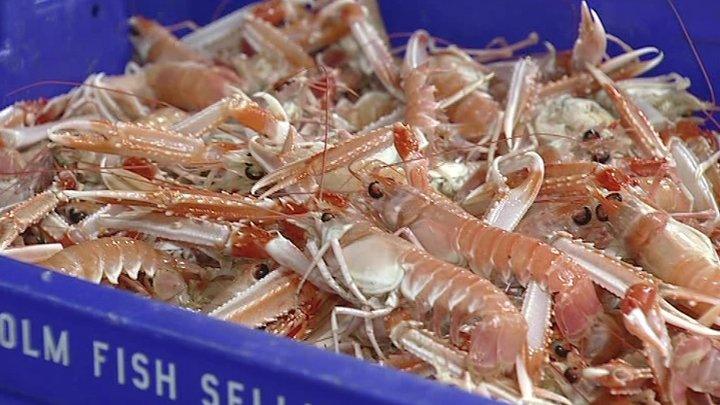Irish Sea mystery as fish stocks continue to decline
- Published
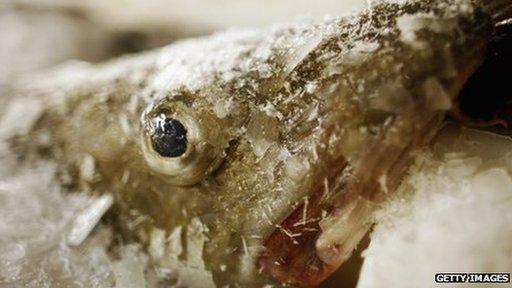
It is thought that global warming and not overfishing may hold the key to the decline in cod stocks
Restrictions on cod and salmon fishing aimed to rejuvenate falling stocks in the Irish Sea and inland waterways do not appear to have halted the decline.
After years of tight quotas from Brussels and strict angling controls, there has been no population boost in the two species.
The Agri-Food and Biosciences Institute (AFBI), which , said global warming may hold the key to their decline.
It said this might also be affecting the eel population.
The AFBI monitors fish numbers for the government.
Its research vessel, The Corystes, sets sail on the Irish Sea more than 200 days a year and uses the latest technology and research skills to monitor all types of marine life and its environment.
Its statistics are used by the European Commission to set fish quotas.
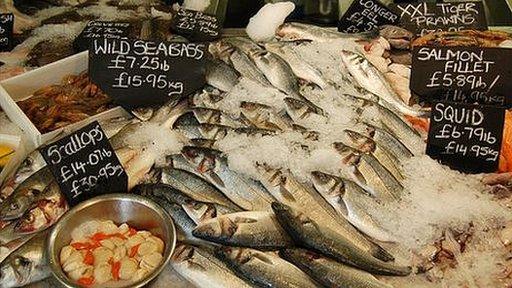
Less traditional fish are now making their way into the markets
However, Walter Crozier, the head of Fisheries and Aquatic Ecosystems at AFBI, said the fishing industry had done all it could to halt a decline in numbers.
"The Irish Sea cod has been doing very badly in recent decades and that caused our advice to the European Commission for a reduction in the catches," he said.
"These reductions were carried out over the last 15 years, but the problem has been the fish stock itself hasn't responded to that.
"It hasn't bounced back in the way that scientists expected. So we're now looking at other explanations because there isn't much more the fishing industry can do to reduce their catch of cod in the Irish Sea."
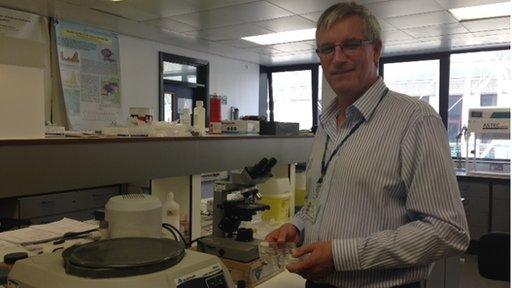
Dr Walter Crozier says they are noticing changes that could be related to the increase in sea temperature
He said there had to be other factors causing a problem with the birth and survival of young cod in the sea.
"We know, for example, the temperature of the Irish Sea has been increasing over the last four decades and that cod, being originally an Arctic species, are pretty much at their southern limit of their range in the Irish Sea with regards to tolerating temperature," he said.
"So we're now looking to see if there is a relationship between poor survival of cod and an increase in temperature."
Dr Crozier also said they were also noticing other changes that could be related to the increase in sea temperature.
"Another thing we are noticing is that there's an increase in species - perhaps again related to the climate change effects - but we're seeing more sea bass and John Dory and so on.
"Now, whether these will become the mainstay of the future fisheries in the Irish Sea as some of our traditional species decline we don't know, but at the minute there are changes under way."
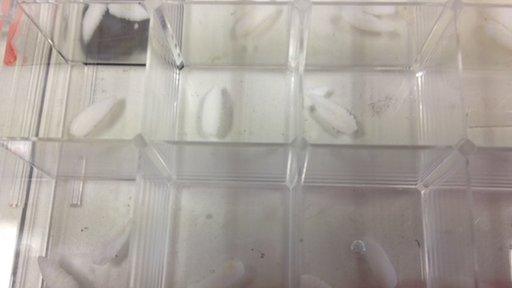
Fish otoliths, pictured in the laboratory, are removed from their heads to determine the overall age of the population
He said there were also concerns about the population of salmon.
"The state of salmon is rather poor at the minute. Unfortunately, for the last decade and a half, when the salmon go to sea they are not surviving as well as they used to which means that many fewer salmon are coming back.
"So, no matter what we're doing in freshwater - in terms of improving water quality and preserving habitat that the salmon need to spawn - something is happening at sea."
He said there was also problem with eels, adding that the AFBI was working with scientists and fishermen at the Lough Neagh eels fishery, the biggest commercial eel fishery in Europe.
"There seems to be particular problems these days with fish that spend part of the life cycle in fresh water and part of the lifecycle in the sea," he said.
"As the salmon has declined, the eels have also declined, possibly for different reasons.
"When the salmon go to sea, they go to the far northern waters, whereas when the eels go to sea they go to the Sargasso Sea in the Caribbean.
"So, there are different factors happening out in the ocean but they're actually affecting two types of fish that we rely on back at some."
The Agri-Food and Biosciences Institute was created in April 2006 as an amalgamation of the Department of Agriculture and Rural Development (DARD) Science Service and the Agricultural Research Institute of Northern Ireland (ARINI). AFBI is a DARD Non-Departmental Public Body (NDPB).
AFBI carries out high technology research and development, statutory, analytical, and diagnostic testing functions for DARD and other Government departments, public bodies and commercial companies.
- Published15 December 2011
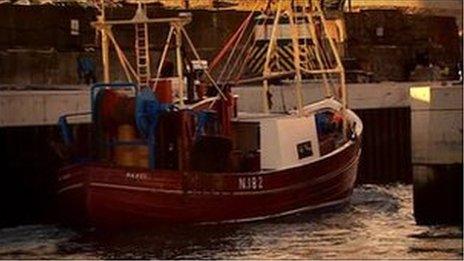
- Published20 December 2012
